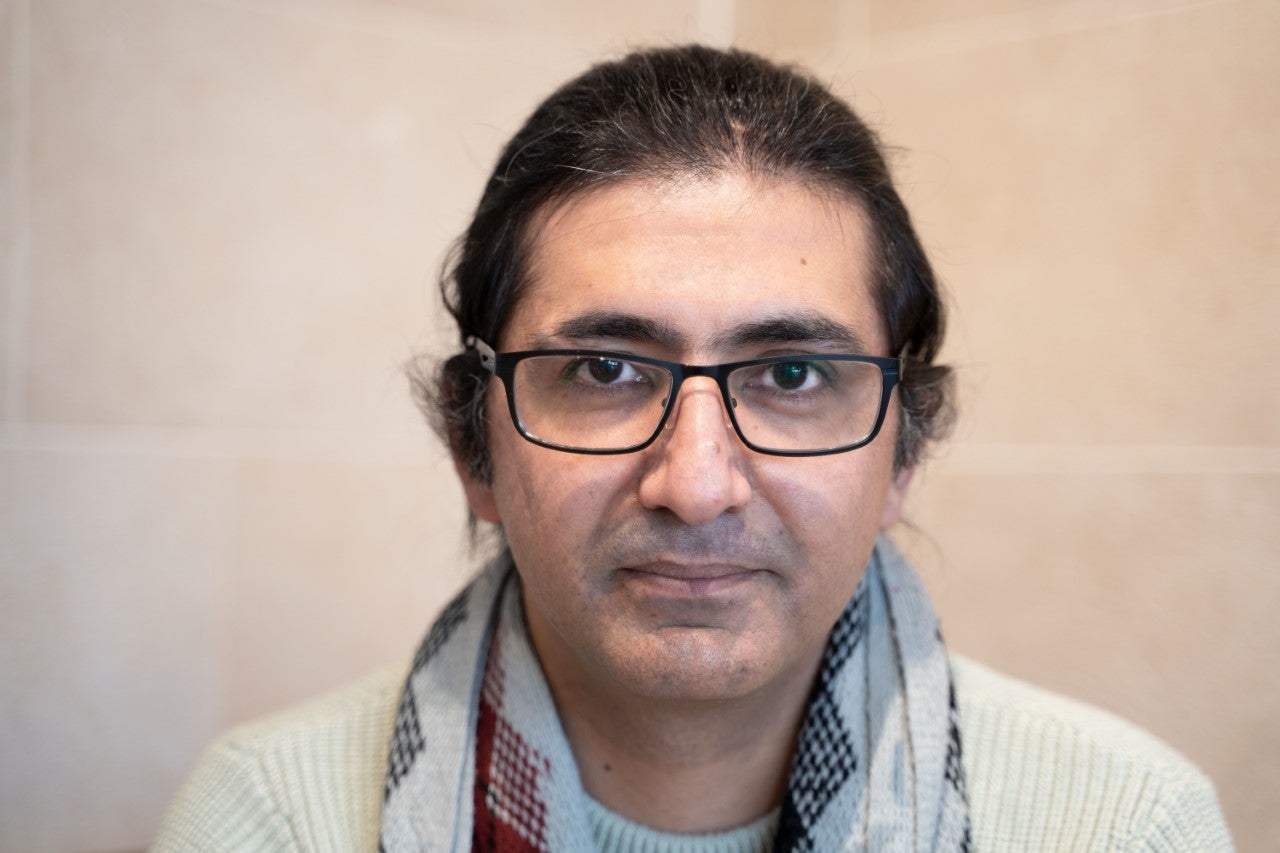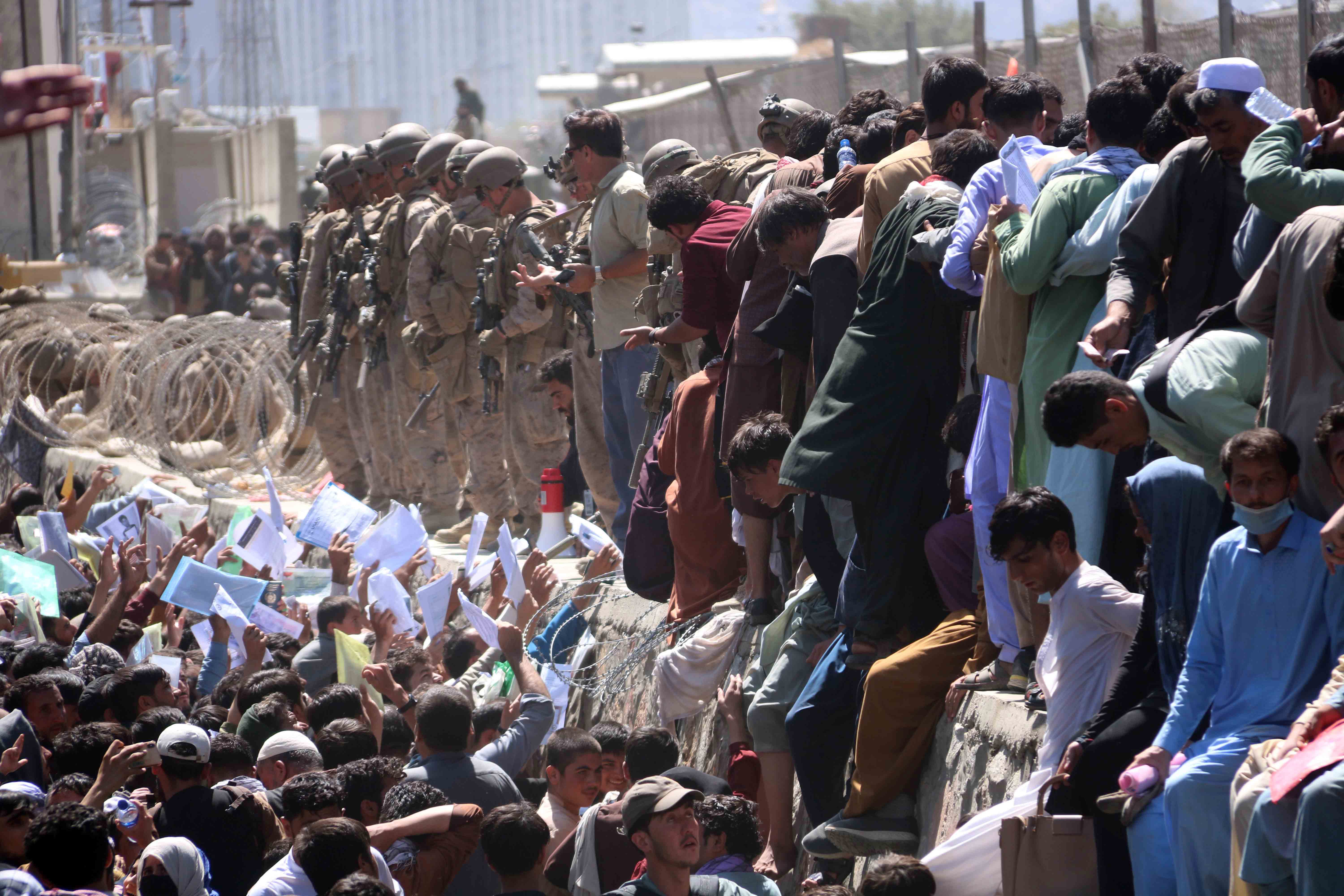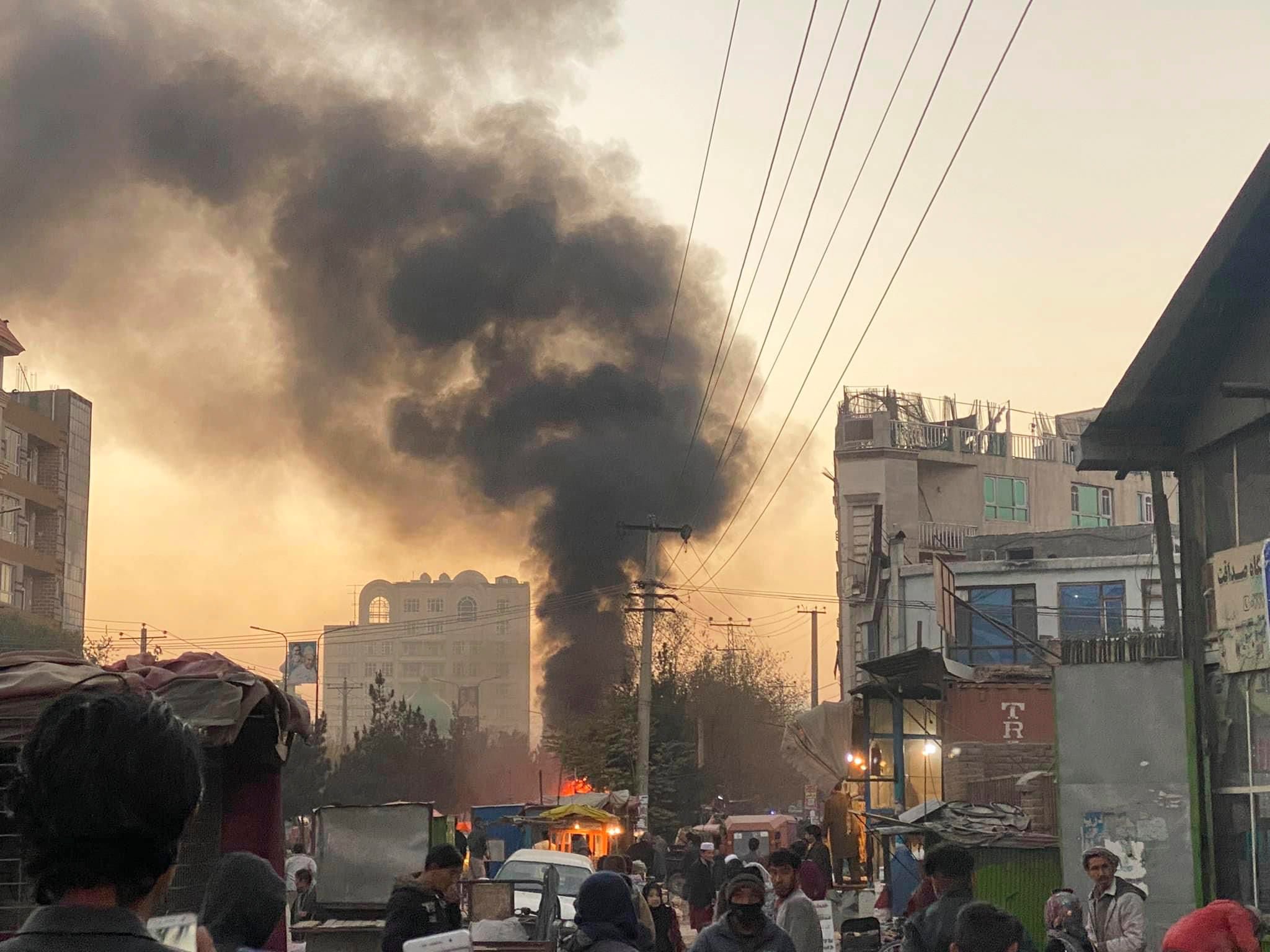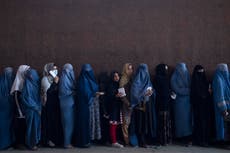‘The free world betrayed us’: Pulitzer-winning photographer urges the west to resettle Afghan refugees
He fled the Taliban after capturing the fall of Kabul. Now Massoud Hossaini is in limbo in the Netherlands and tells Holly Bancroft he could be sent back to Afghanistan unless the west keeps its promises


Afghan photographer Massoud Hossaini caught the last commercial flight out of Kabul in August after spending months on the front lines capturing the Taliban’s advance and the end of the 20-year conflict that had ravaged his country.
Now the Pulitzer Prize winner is living in the Netherlands, where he has only three months left on his visa and is facing the prospect of being sent back to Afghanistan.
In an interview with The Independent, Hossaini criticised the west for abandoning Afghan refugees and spoke about his own desperate attempt to secure a move to the UK.
Despite numerous job offers from organisations in the UK, he has been rejected for an artist visa on the grounds that journalists don’t qualify, while the nation’s much-heralded Afghan citizens resettlement scheme has not yet been established four months on.
Hossaini is just one of many Afghans who are now living in limbo, hoping that western governments deliver on their promises.
“I am right now a true witness of this situation,” he told The Independent.
“We didn’t want to be refugees. We were pushed out of Afghanistan and exiled. We were all together in this – Nato, Holland, the UK, US, Canada – working and promoting democracy and freedom in Afghanistan... and this is the result.
“They said they would never abandon us, and now, it’s exactly what is happening,” Hossaini added. “All of it was just a big lie.”
Unable to travel to take photos, and with his bank accounts frozen, Hossaini has no idea what will happen to him.
If Massoud goes back to Afghanistan he will be killed
He is trying all avenues to find a permanent home and a place to work, and only wants to apply for asylum as a last resort.
The 39-year-old has been forced to rely on the kindness of friends and charities. He fears that he will ultimately end up in a refugee camp, or be sent back to Afghanistan.
“I never want to go to the camps,” he said, “For me it is a humiliation. I have several friends who are there – two models who were the pride and beauty of Afghanistan – and they cannot travel. There is no way for them to train how to work, or learn how to live here. They have been jailed and I am really sad at what is happening to us, to our people.”

Going back to Kabul would be a death sentence, according to his friend and colleague Lynne O’Donnell, former Kabul bureau chief for the Associated Press.
“If he goes back to Afghanistan he will be killed,” said O’Donnell, who worked with Hossaini reporting on the Taliban’s takeover.
She described their time together, saying: “Every day I got into the passenger seat of his car and there were bullet holes from the last time he was ambushed. He’s a high-value Taliban target.
“He is really one of the best photographers I have ever worked with. He’s got job offers in London and could arrive here and hit the ground running.”
Vaughan Smith, founder of the Frontline Club, is one of the people who have offered Hossaini work and accommodation in the UK.
He told The Independent: “General Carter, the head of the UK’s defence staff, came [here] recently and he publicly expressed the hope that, despite our departure from Afghanistan, democracy might somehow still take hold as a result of our 20 years’ involvement.
“If there is still hope, why on earth aren’t we doing the most obvious thing we can do to achieve that aim, which is help Afghan journalists continue to work?” asked Smith, whose organisation champions independent journalism and promotes free speech.
One hope for Afghans stuck in third-party countries, or still in Afghanistan, is the UK’s Afghan citizens resettlement scheme.
Announced by the British government on 18 August, the scheme pledged to help 5,000 people in the first year and up to 20,000 in the coming years.
However, nearly four months on, the programme has yet to be designed, and MPs who try to contact the Home Office about it say they are being ignored.
Allies and the free world betrayed us, and I lost everything
The Independent spoke to one of two sisters who had fled Kabul for Iran earlier this month.
A former employee of the Afghan parliament, she was particularly at risk, but all efforts to obtain UK visas for her and her sister failed.
Their British uncle enlisted the help of Charlie Walker MP, who managed to raise their case directly with Home Office minister Victoria Atkins. Despite this, when their Iranian visa ran out, they were forced to return to Afghanistan.
She said this week that she was scared to go outside, adding: “Living in this situation and the circumstances feels like gradual death for my entire family.”
Emma Lewell-Buck MP, member of the UK’s Defence Select Committee, said she doesn’t think the government “has a clue”.
“Why on earth would they launch the scheme and then leave it hanging? All these people are waiting desperately to find out what their futures are going to be and the government’s just making nice statements in the chamber and patting themselves on the back.
“Other countries have managed this and we haven’t, and that’s because the political will isn’t there,” she added. “We have the resources; if there was political will, it would happen. Everything should be put on hold until this is sorted out.”
Dame Margaret Hodge MP said she had been contacted by hundreds of constituents who have relatives stranded in Afghanistan, but that her letters to the Home Office about these cases had gone unanswered.
“If Priti Patel and the Home Office cannot keep a simple promise to respond to my letters, it leaves me with grave concerns that they will not keep their promises to the Afghan people regarding the resettlement scheme,” she said.
Chief executive of the Joint Council for the Welfare of Immigrants, Minnie Rahman, said the delay to the scheme was “shameful”.
“Afghans like Massoud will now be facing threats to their life at home, limbo in countries where they don’t speak the language, or criminalisation under the new borders bill,” she warned.

In fact, many Afghans reside in the migrant camps in Calais, northern France, and it is feared that some of the 27 people who drowned trying to cross the Channel in an inflatable boat this week were from Afghanistan.
A Home Office spokesperson described the Afghan citizens resettlement scheme as “one of the most generous schemes in our country’s history”.
“We continue to work at pace to open the scheme amid a complex and changing picture, working across government and with partners such as UNHCR,” the spokesperson said.
A representative from the Dutch Immigration and Naturalisation Service said that they could not comment on Hossaini’s case.
But they told The Independent that Afghans could stay wherever they wanted in the Netherlands during their asylum procedure, and that they would be entitled to work if their applications took longer than six months to process.
Last week, in recognition for his work documenting the Taliban’s takeover of Afghanistan, San Jose University presented Hossaini with a freedom of speech award.
Unable to travel to the ceremony, Hossaini sat down in his friend’s study to join the event in California over Zoom.
After he accepted the award, messages flooded in from fellow Afghan journalists telling him it was the first happy news they had received since the fall of Kabul.
In a statement issued after his win, Hossaini said he was planning to use the award to raise the voice of his generation of Afghans who had “tried hard to work for and promote freedom and democracy”.
“However”, he added, “allies and the free world betrayed us and I [lost] everything”.
Join our commenting forum
Join thought-provoking conversations, follow other Independent readers and see their replies
Comments


Bookmark popover
Removed from bookmarks